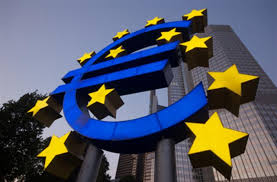The Eurozone is an economic and monetary union, which consists of 19 countries within the European Union, which in itself is a confederation of 28 nations primarily from Europe, forming an economic union. To know more about an economic and monetary union, go here : http://vskills.in/certification/blog/the-eurozone-as-an-economic-and-monetary-union/. The countries of the Euro zone (euro area) use a common currency called the Euro and share a common independent monetary policy which is presided over by the European Central Bank.
Germany one of the major economies of the world, is the largest economy of the European Union and also its most populous member. It is the world’s fourth largest economy by nominal GDP and the fifth largest by purchasing power parity. It is the second largest exporter and third largest importer of goods. Thus Germany is a fairly export dependent economy. Germany was divided into two parts post world war II: West and East Germany. Both parts came together during the German reunification in 1990. It was a founding member of the European community in 1957, the predecessor of the EU and has been at the its heart ever since.
If Germany is such a powerful economy, why did it enter into a monetary union with relatively weaker economies such as Greece, Portugal, Italy, and others?
Germany was initially hesitant to give up its stable Deutsche Mark which was a sign of the German economic miracle. Even when the Euro was introduced, polls found out that majority Germans had reservations supporting it. But the tables were turned when France and UK opposed the proposed German unification and even attempted to influence the Soviet Union to stop it. Knowing that Germany would be an important member of the Euro area, France extracted German commitment to the monetary union in return for its support to the German unification. But Germany joined the Eurozone also out of self-interest.
- Being an export-based country, adopting the Euro meant widening of its export market in, and a direct trading access to Europe coupled with no exchange rate volatility and costs.
- Also other countries of the Euro zone would benefit from the low near-German interest rates of the monetary union which meant an increase in purchasing power of the Euro zone countries to buy German exports.
Click here for government certification in Accounting, Banking & Finance





1 Comment. Leave new
Good article.. Nice..